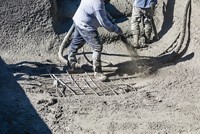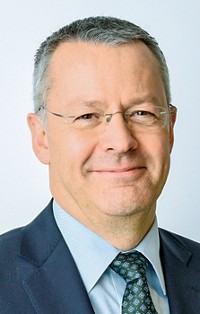Advertisement
Grab your lab coat. Let's get started
Welcome!
Welcome!
Create an account below to get 6 C&EN articles per month, receive newsletters and more - all free.
It seems this is your first time logging in online. Please enter the following information to continue.
As an ACS member you automatically get access to this site. All we need is few more details to create your reading experience.
Not you? Sign in with a different account.
Not you? Sign in with a different account.
ERROR 1
ERROR 1
ERROR 2
ERROR 2
ERROR 2
ERROR 2
ERROR 2
Password and Confirm password must match.
If you have an ACS member number, please enter it here so we can link this account to your membership. (optional)
ERROR 2
ACS values your privacy. By submitting your information, you are gaining access to C&EN and subscribing to our weekly newsletter. We use the information you provide to make your reading experience better, and we will never sell your data to third party members.
Business
Solvay To Buy Rhodia For $4.8 Billion
Specialty Chemicals: Acquisition will bolster Solvay's focus on emerging markets
by Marc S. Reisch
April 5, 2011
Belgian chemicals maker Solvay has made a cash tender offer to buy France's Rhodia for $4.8 billion. If successful, the acquisition will nearly double Solvay's sales, accelerate its expansion into fast-growing developing markets, and deploy cash it has been sitting on since selling its pharmaceuticals business to Abbott Laboratories for $7.6 billion more than a year ago.
Rhodia's board of directors has approved the combination, which will create a top 20 chemical firm with more than $17 billion in annual sales and nearly 31,000 employees worldwide. Rhodia's stockholders will get a premium of 44% above the average closing price of their shares over the last 90 days. The two expect to complete the transaction by the end of August, pending government approvals.
Solvay CEO Christian Jourquin says the combination will double his firm's earnings to $3 billion per year and create "a major global chemicals platform under the banner of Solvay." And it will allow Solvay to develop "innovative solutions to some of the greatest challenges facing humanity in the 21st century."
Post-merger plans call for Jean-Pierre Clamadieu, Rhodia's CEO, to join Solvay's executive committee as deputy CEO. The plan is for Clamadieu to join Solvay's board of directors in 2012 and become CEO when Jourquin retires.
The firms boast that more than 90% of combined sales will come from businesses where they are among the top three suppliers globally. These include soda ash, vinyl plastics, and fluoropolymers on Solvay's side and nylon 6/6 polymers, rare earths, and specialty surfactants on the Rhodia side.
The two expect to realize annual cost savings of $350 million within three years following completion of the merger, without significant job losses. "No major downsizing is planned in the context of this combination," they say.
For Rhodia, which flirted with bankruptcy soon after Clamadieu took over as CEO in 2003, the sale to Solvay is a major vindication. Since then, the firm, which spun out of Rhône-Poulenc in 1997, has sold businesses in pharmaceutical chemicals, latex polymers, industrial phosphates, and silicones to reduce debt to more manageable levels.
For Solvay, the purchase of Rhodia means putting the cash it obtained in the sale of its drug business to Abbott to good use. According to market reports, Solvay made a bid for industrial enzymes maker Danisco earlier this year. Instead, DuPont reached an agreement to buy Danisco for $6.3 billion. Most analysts see Solvay's deal with Rhodia as a better fit.
Mark van de Geest, a senior chemical analyst with the investment bank ABN Amro, says the deal is positive for Solvay because it makes the firm less cyclical and exposes it more to consumer markets than construction markets. In addition, he points out, the combined firm will derive about 40% of its sales from emerging markets, compared to 33% of sales from emerging markets for Solvay alone.
However, van de Geest calls the premium Solvay is paying for Rhodia's shares "a bit much." And he adds that the $350 million in cost savings the two hope to achieve "looks too optimistic."
Andreas Heine, head of European chemicals research for UniCredit Bank, argues that the cost savings is achievable, despite the "limited overlap" between the two firms' businesses. And on a positive note for European chemical stocks, he adds that the high value Solvay has placed on Rhodia's shares is likely to improve investors' valuation of European chemical majors such as Clariant, Lanxess, and Arkema.







Join the conversation
Contact the reporter
Submit a Letter to the Editor for publication
Engage with us on Twitter